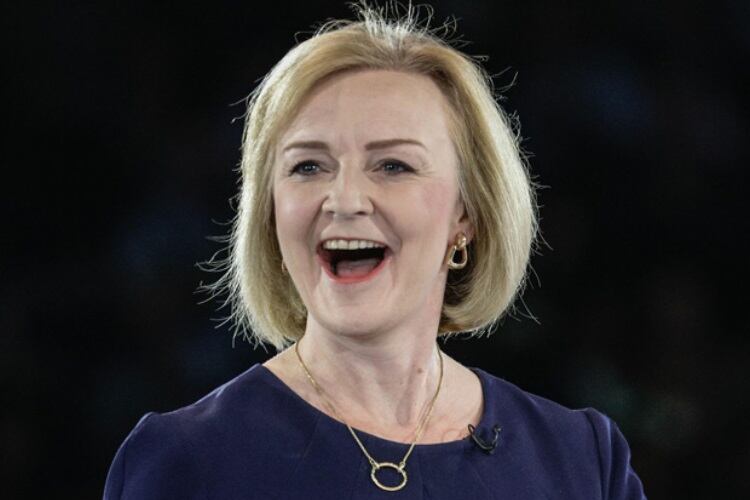The new UK Prime Minister Liz Truss has ordered a review into proposals to limit the promotion of HFSS products as part of a broader push to cut red tape, according to a report in The Guardian. It is claimed the policy analysis could look at scrapping calorie counts on menus - a measure that came into force in April. It could also bin plans to introduce an online ban of junk food advertising and the introduction of a watershed on TV, proposals that had already been delayed by a year.
The postponed regulations required the nutritional composition of food and beverages to be established in order to determine whether specific product types were permitted to be promoted or advertised. Restricted products are classified as HFSS according to their content of calories and certain nutrients of public health concern while recognizing contributions from components such as fruits and vegetables or fibre.
If the reports of an expected U-turn are accurate, the news would ring true with the direction of travel Truss signalled during Conservative Party leadership hustings. Addressing the Tory faithful, who were responsible for appointing her to the position of party leader and Prime Minister, Truss claimed people want government to focus on touch paper issues like transport, public services and NHS waiting times rather than 'telling them what to eat'.
The news has been warmly welcomed by the advertising industry, which was staunchly opposed to the new restrictions that were developed under previous Prime Minister Boris Johnson.
"A review by the new Health Secretary of the HFSS advertising restrictions on TV and online, introduced by the previous Government, would be very welcome," commented Richard Lindsay, Director of Legal & Public Affairs at the Institute of Practitioners in Advertising (IPA).
"We have always been clear that, based on that Government’s own evidence, the restrictions would do nothing to address the problem of childhood obesity that all of us want to solve, but would have a damaging impact on businesses."
Not everyone agrees with this conclusion.
Indeed, UK researchers who today published a new perspective in Obesity, The Obesity Society’s flagship journal, insist that any delay would be a ‘step back’ in combatting rising obesity levels.
“The government's decision will delay the much-needed transformation of retail food environments and their promoted products, both of which are highly influential on what foods people buy and eat. The likely consequence is a huge set back in improving UK population diets, obesity levels and health,” said corresponding author Dr Sally Moore, of the School of Food Science and Nutrition at the University of Leeds.
Obesity linked to socio-economic disparities and poverty
The restrictions, which were framed within the UK Childhood Obesity Plan, were designed to slow rising levels of childhood obesity. UK government figures show 25.5% of 10- to 11-year-olds are obese and 15.4% overweight.
There are clear links to poverty and deprivation, with children living in deprived areas structurally more likely to be obese and – according to the UK government – ‘uniquely vulnerable to the techniques used to promote sales’.
The researchers argue the policies aim to fundamentally change retail food environments that are promoting less-healthy products, shifting the balance towards healthier foods. “Without this regulation, commercial retail food environments will be difficult to change,” they warned.
The delay, they suggested, is expected to worsen the growing inequalities in dietary quality and obesity levels that are associated with socioeconomic status.
When the government initially said it would delay its plans by one year, the move was rationalised by the global economic situation and rising cost of food. But healthcare and nutrition professionals report concern over both food poverty and obesity, which can often go hand-in-hand. “There is an urgent need to address this equitably and ethically by reducing socioeconomic disparities and levels of poverty,” the authors said.
‘Willpower’ doesn’t explain the obesity epidemic
The change in tact from the government suggests it has returned to chalking obesity up to individual willpower rather than recognising the structural issues at play, worries Dr Tom Butler of the Faculty of Health, Social Care and Medicine and the Cardiorespiratory Research Centre, Edge Hill University.
“Willpower alone cannot explain successful weight management,” he stressed, adding, “Delaying these polices will, yet again, leave public health and clinical practitioners tackling obesity with less-effective approaches focused on individual willpower and information provision.”
“The UK government’s adoption of restrictions on promotions of less-healthy foods as well as their advertising would have been a huge leap forward in nutrition-related public policy. Not only would the adoption of such a policy been in line with current scientific understanding, there is also significant public support in the UK for such policies,” claimed Dr Travis Masterson, Broadhurst Career Development Professor for the Study of Health Promotion and Disease Prevention at The Pennsylvania State University.
“While individual willpower does indeed play a role in weight-related outcomes, providing a supportive environment plays a critical role in strengthening and fortifying individuals in their initial and sustained efforts to reach healthier weights and lifestyles. Policies that favour the uptake and promotion of high-energy, nutrient-poor foods can only serve to damage the general public’s health in the long run.”




